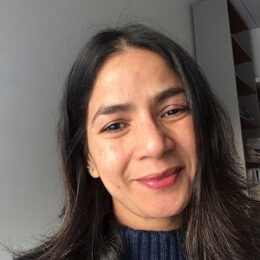Researchers
Rumy Narayan
Seconded from the University of Vaasa (UVA) to the International Software Consulting Network (ISCN)
1 month, Spring 2019
I appreciate the freedom to explore and create my own path that the OpenInnoTrain secondment has offered me. This is important as my research involves understanding transition to sustainable energy systems as a process, with a special focus on organizational processes. The nature of the research demands innovative thinking that is able to identify how the current energy paradigm operates and influences distinctive paths and in doing so lay the ground work for transitioning towards the new sustainable paradigm. In this context, decentralized technologies frequently referred to as blockchain gains relevance.
The secondment allowed me time and space to engage with the latest literature on decentralized technologies, including recent developments in the cryptocurrency space. Based on this material I developed a framework for designing organizational processes through tokenization. The initial draft was shared with the industry partner and subsequently refined after getting feedback. This framework will be presented at a workshop at EuroSPI on September 19, 2019. This secondment created the opportunity for conducting pure research in addition to leveraging this research to inform businesses about practical transition pathways.
Impact of OpenInnoTrain on my career and organisation
I study transitions to sustainable energy systems. My research interests fall within a framework of innovation possibilities that could potentially address pressing global challenges of our time, while stimulating societal and economic prosperity. This entails activating innovations across sectors, actors, and disciplines, while enabling experimentations, a complex process that needs appropriate tools for coordinating and managing diverse networks.
How has the secondment created new perspectives for applying your knowledge in practical situations?
Transitions research is about changing paradigms that require unique ways of thinking and the consequences of information technology-sustainable energy nexus in this transition process is not very well-understood both within academia as well as industry. It is an opportunity for understanding the underlying structures that enable as well as prevent this process, and the mental models that influence these structures. It might not always translate into results that either academia or industry expects. This has implications on innovation and offers valuable clues into innovation processes – what is their contribution to the transition to a sustainable energy regime.
Transitions in energy systems have deeper implications as it involves questioning our very way of life. It is during such periods that past anomalies can cause tremendous amounts of dissonance. For instance, working with industry revealed some of the flawed knowledge structures that management science is built on and how important it is to challenge these structures in order to offer real solutions to industry.
How has the secondment created new career perspectives for you?
It has provided the opportunity to interact with industry actors and researchers from completely different disciplines and learn from them. With both researchers and industry actors, most often such learning experiences have been enriching and have led to fruitful collaborations.
The secondments have changed perceptions about jobs and careers completely and this change of perception has uncovered the value in developing multi-disciplinary skills and their relevance in the emerging environment.
How has the secondment given you global mobility opportunities?
I have had a global career, so that was not what I was looking for. The secondments have helped me frame a new understanding of career in the emerging information society, which is significantly different from how it is viewed through the lenses of a primarily industrial economy mindset. Learning and mobility is about contextualizing information strategically and that is what the secondments taught me.
The secondments offered opportunities to engage with day to day challenges faced by firms and how dominant narratives and prevalent energy configurations encourages path dependencies while impeding innovations that could help them navigate contemporary industrial and societal challenges. Globalization is no longer about convergence of international markets, it’s about diversity of ideas and creating market abundance for value creation and circulation.
How has the secondment given your organisation opportunities?
From the perspective of a doctoral student, one can say that these secondments have fostered valuable networks and links with other researchers and firms.

